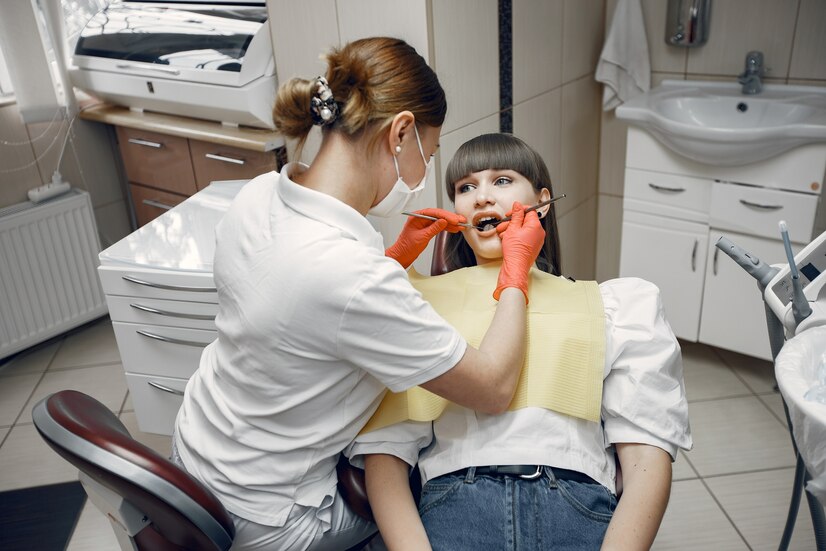For many people, the mere thought of visiting the dentist can cause anxiety or even fear. Whether it’s the sound of the drill, the sight of needles, or simply the discomfort of certain procedures, dental visits can feel overwhelming. If you’ve ever felt this way, you’re not alone. According to a survey by the American Dental Association, nearly 30% of adults in the United States experience some form of dental anxiety.
But what if there was a way to ease those fears and make dental procedures more comfortable? That’s where sedation dentistry comes in.
What is Sedation Dentistry?
Sedation dentistry is a practice where sedative medications are used to help patients relax during dental procedures. It can be especially helpful for those who feel nervous, anxious, or fearful of the dentist’s office. The idea behind sedation dentistry is not to put you to sleep but to put you in a relaxed, calm state while allowing your dentist to perform the necessary work.
There are several types of sedation that dental professionals may use, ranging from mild forms like nitrous oxide (laughing gas) to stronger options like oral sedatives or intravenous (IV) sedation. The type of sedation will depend on the procedure and the level of anxiety the patient experiences.
Why Should You Care About Sedation Dentistry?
For some individuals, avoiding the dentist due to fear or anxiety can lead to more serious dental issues down the line. These problems might include cavities, gum disease, or even tooth loss. Unfortunately, putting off routine checkups or treatments can escalate a simple problem into something far more complex.
Sedation dentistry offers a way to overcome this barrier. It allows patients to receive the dental care they need without the emotional or physical stress that often accompanies traditional visits. It’s also useful for patients who need to undergo lengthy or complex procedures, as the sedatives help them stay calm and comfortable throughout.
Who Can Benefit from Sedation Dentistry?
While sedation dentistry is commonly associated with patients who experience dental anxiety, it can also be helpful for:
- People with a low pain threshold – If you are someone who finds dental procedures uncomfortable, sedation can reduce your discomfort.
- Patients with sensitive gag reflexes – Sedation can make it easier for these individuals to tolerate dental procedures.
- Individuals with special needs – Sedation allows these patients to receive care in a calm, controlled environment.
- Those requiring extensive work – Sedation makes it possible to complete multiple procedures in one visit, saving time and reducing stress.
How Does Sedation Dentistry Work?
The process of sedation dentistry varies depending on the type of sedation used:
- Nitrous Oxide (Laughing Gas): This is the lightest form of sedation. It’s inhaled through a mask, and within minutes, you feel relaxed and at ease. Nitrous oxide wears off quickly, so you can return to your normal activities right after the procedure.
- Oral Sedation: In this case, the dentist prescribes an oral sedative before your appointment. This helps you feel calm and relaxed, and it can last longer than nitrous oxide.
- IV Sedation: This is a deeper form of sedation, where medication is delivered directly into your bloodstream through an IV. You will be relaxed and may not remember much of the procedure. This type of sedation is typically used for longer or more complex dental treatments.
The Benefits of Sedation Dentistry
- Reduces Anxiety: Sedation helps ease the fear and anxiety that many people feel before and during dental procedures.
- Increases Comfort: Whether you’re getting a simple cleaning or a complex root canal, sedation helps make the experience more comfortable.
- Improves Efficiency: For patients needing multiple procedures, sedation allows the dentist to complete the work in one sitting, minimizing the number of visits required.
- Helps with Special Needs: Sedation dentistry can provide a calm and controlled environment for patients who may struggle with dental visits due to physical or mental health conditions.
What to Expect During a Sedation Dentistry Appointment
The process starts with an initial consultation where the dentist will review your medical history and discuss the appropriate sedation option based on your needs. On the day of your appointment, the sedative will be administered, and your dentist will monitor you throughout the procedure to ensure your safety and comfort.
For patients undergoing heavier sedation (like oral or IV sedation), it’s important to arrange for someone to drive you home afterward, as you may feel drowsy or groggy.
How to Find a Dentist Who Specializes in Sedation Dentistry
If you’re considering sedation dentistry, it’s essential to choose a qualified professional who is experienced in its use. Look for a dentist who is certified in sedation techniques and has a track record of successfully helping patients with dental anxiety. Many dental practices now offer sedation as part of their services.
For those in York, PA, a trusted practice like Red Lion Dental is known for providing high-quality sedation dentistry to ensure patients have a comfortable, stress-free experience.
Take the Next Step
If you’ve been putting off dental care due to fear or anxiety, now is the perfect time to consider sedation dentistry. The team at Red Lion Dental in York, PA can guide you through the process and help you achieve the smile you’ve always wanted with ease.
To learn more or schedule a consultation, visit Red Lion Dental or call 717-246-1085. Don’t let fear hold you back from your best oral health.

